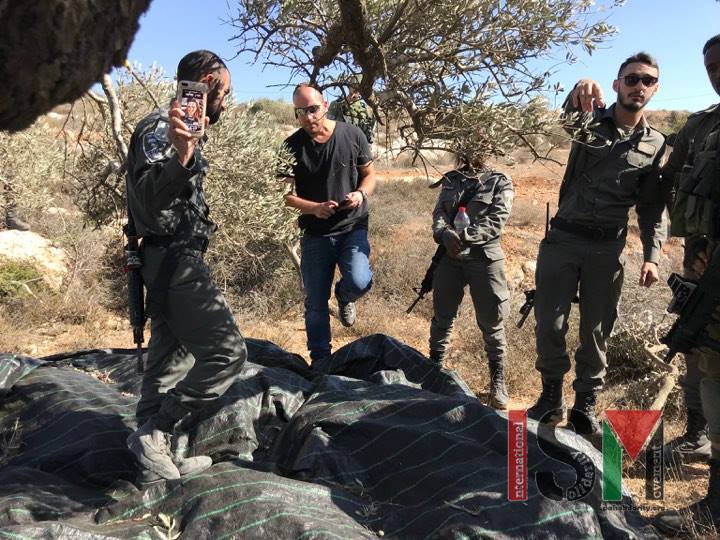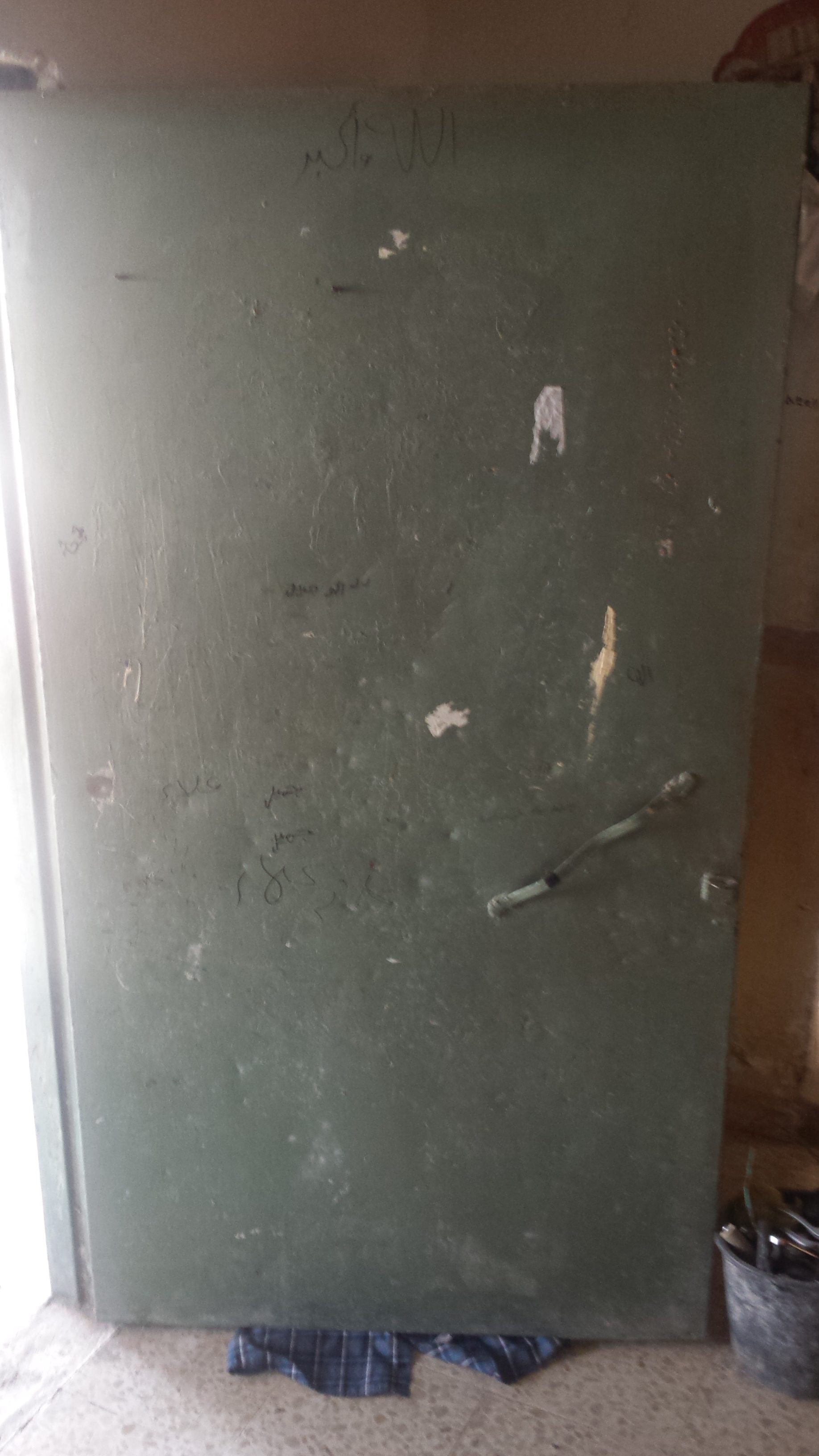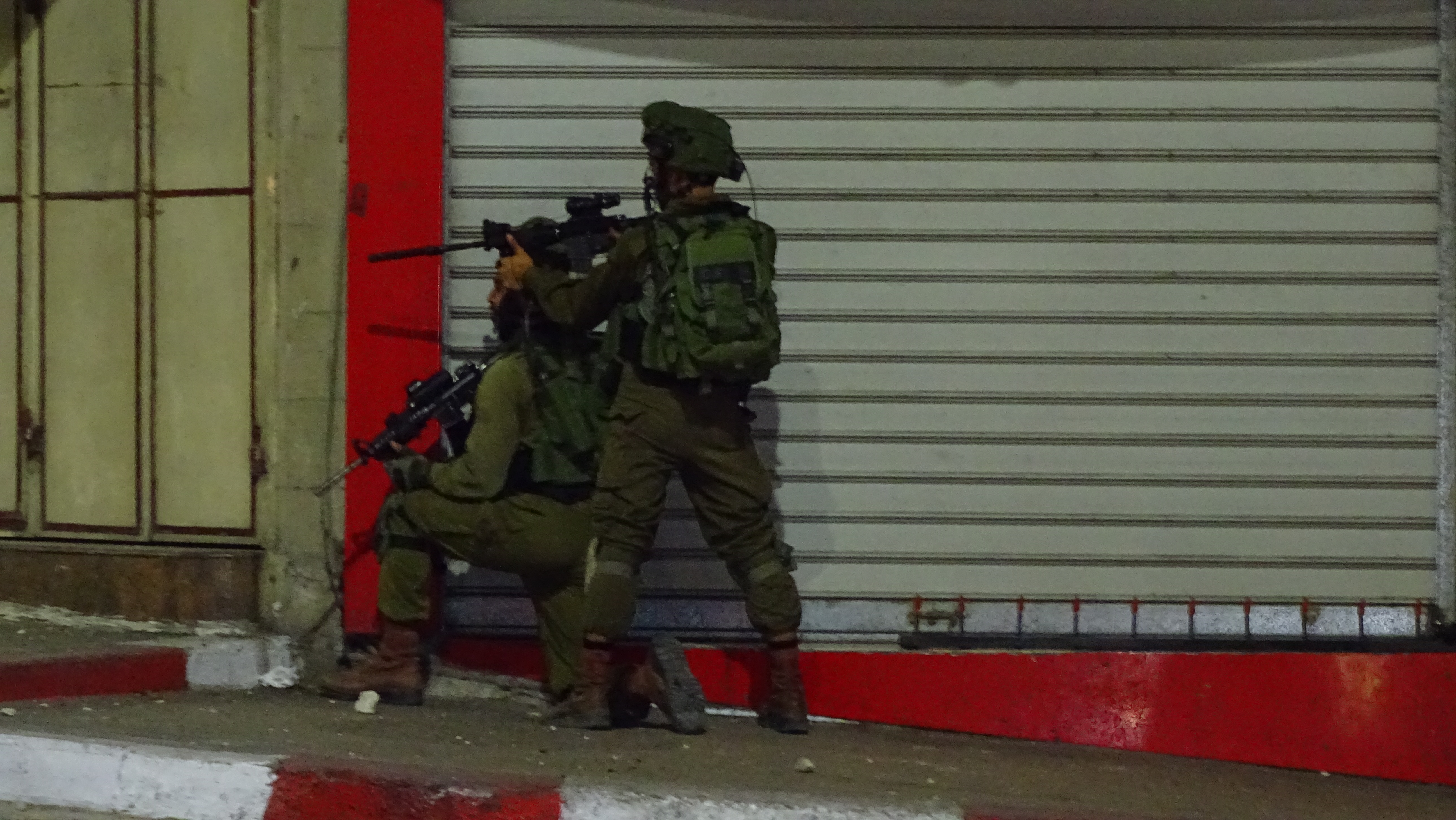-
Israeli armed forces and settlers harassing farmers in As Sawiya
31st October 2017 | International Solidarity Movement, Nablus team | Nablus, Occupied Palestine On Sunday the 29th of October 2017 – near the Palestinian village As Sawiya – Palestinians and Internationals harvesting olives were met by the Israeli army. Three ISM’ers joined two Palestinian women harvesting in their family land. The family has been facing […]
-
Israeli army arrest son during night raid in Fasayel family house
21st October 2017 | International Solidarity Movement | Nablus Team | Jordan Valley Solidarity | Occupied Palestine The night between Wednesday and Thursday the house of Abu Jamil got raided by the Israeli military. At one AM four military jeeps arrived to upper Fasayel and about 20 Israeli armed soldiers entered Abu Jamils house, forcing the family of 9 […]
-
Israeli Forces closed media production companies in Bethlehem, Ramallah, Hebron and Nablus last Wednesday night.
18th October 2017 | International Solidarity Movement, Nablus team | Nablus, Occupied Palestine The army raided the Pal Media and Trans Media headquarters in Ramallah and seized their equipment and video material. Also other companies and branches of the two companies in Nablus, Bethlehem and Hebron were raided the same night. Soldiers closed the entrances […]
Action Alert An Nabi Saleh Apartheid Wall Arrests BDS Bethlehem Bil'in Cast Lead Demonstration Denial of Entry Ethnic Cleansing Farmers Gaza Global Actions Hebron House Demolition International law Israeli Army Jerusalem Live Ammunition Nablus Ni'lin Prisoner Ramallah Rubber-coated steel bullets Settlement Settlers Settler violence Tear-Gas Canister Video



